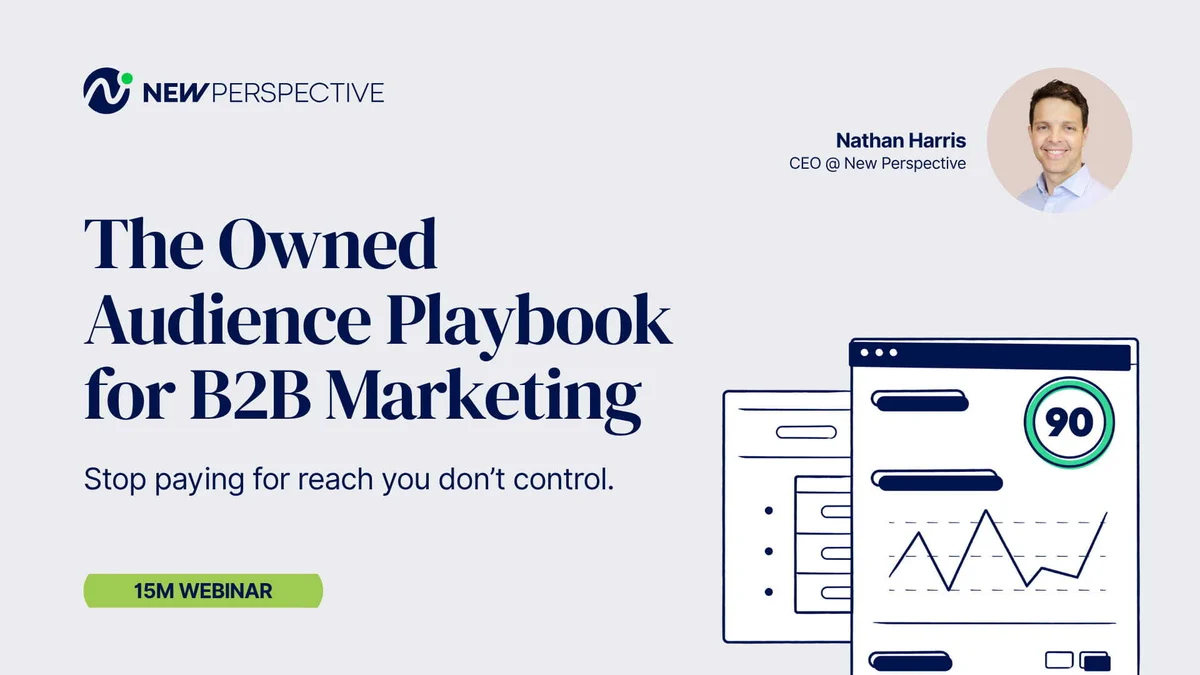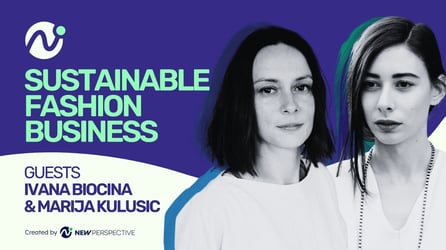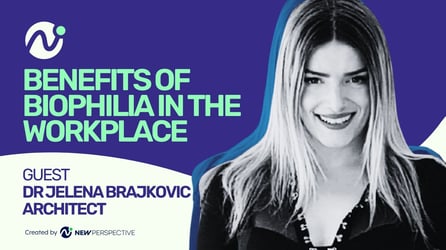Episode Info
There’s a paradox at the heart of sustainability. Everyone says they want it: consumers, companies, governments… But when you look closer, the definitions splinter. Is it about carbon? Is it about biodiversity? Is it about transparency, or just better marketing?
That’s what we wanted to explore in this conversation. Because it’s one thing to say you’re “planting trees,” and another to actually prove they’re surviving, restoring soil, creating jobs, and reshaping industries that thrive on constant consumption.
To dig into this, we spoke with Anika de la Flor, Global Sustainability Director at Deciem, the company behind the popular beauty brand The Ordinary, and David Luba, co-founder of veritree. This technology platform enables restoration to be measured by tracking survival rates, soil health, biodiversity, and community benefits. Together, they sit at this fascinating intersection: beauty and consumer goods on one side, ecological restoration and ground-level data on the other.
This conversation isn’t just about corporate sustainability. It’s about what authenticity looks like when consumers have endless information at their fingertips, and about how businesses can create real impact — the kind you can measure, and the kind that builds trust.
Interview with Anika & David
Dunya Jovanovic: Anika, can you tell us more about yourself, your background, and then provide a brief intro to Deciem and how sustainability is integrated into your work?
Anika De La Flor: I was born and raised in Peru, but I have lived and worked in Canada for most of my professional career. I currently live in Toronto, where Deciem was founded and continues to operate. As a company, we’ve worked hard to democratize skincare. We launched many years ago with a focus on transparency, science, and accessibility for everyone. It’s an exciting company to work for, and sustainability has become a core element of our operations. I’m personally very passionate about sustainability because of my roots. Growing up in a country with immense biodiversity, rich resources, and a deep culture shaped how I see the world. I believe sustainability is about more than protecting nature — it’s about supporting communities and social development while preserving what makes our planet unique. For me, it’s deeply personal. I believe every industry has a responsibility to become more sustainable.
David Luba: I grew up in Saskatchewan, Canada, which is mostly farmland, very different from what Annika described. During my university years, I participated in a student exchange program in Hawaii. That semester was spent entirely outdoors, with activities such as hiking, surfing, and immersing myself in nature. I fell in love with the beauty of our planet. That experience led to Tentree, a lifestyle apparel company that plants 10 trees for every item sold. To date, Tentree has funded the planting of over 100 million trees worldwide. But along the way, we struggled with transparency. It was challenging to measure outcomes or track developments in the field. That challenge inspired Veritree, our second company. Tentree plants trees, while Veritree provides the technology that allows businesses to invest in restoration with measurable, transparent results.
DJ: For those who aren’t familiar, how would you explain the difference between what you’re doing with Tentree and Veritree compared to more traditional ecological restoration or carbon offset programs?
DL: With Veritree, it starts at the ground level. We gather real-time, on-the-ground data and look at impact holistically. We don’t just focus on carbon or just on community benefits — we look at the whole picture. Many other projects are monitored from space, using satellites. The challenge is that for the first one to three years, you often don’t know what’s actually happening on the ground. By focusing on field-level data and tracking multiple layers of impact, we get a more accurate and complete view.
DJ: And with Tentree, how do you differentiate yourself from other apparel companies?
DL: We always started with the trees first and the clothing second. It’s in our name. We never set out to build a clothing company: we wanted to restore the planet. Looking back, there are easier ways to do that than starting an apparel brand, but that’s the route we took. What really differentiates us is that it’s in our DNA. It’s always been at the core of our promise, and we’re leaders in terms of the number of trees planted. Additionally, establishing trust and transparency through Veritree has further distinguished Tentree. It ties back to our original mission: to restore the planet.
DJ: Anika, Deciem recently announced a partnership with Veritree. How did that come about, and what does this project involve?
AD: As a consumer-facing company, we know our business model isn’t inherently sustainable. From the start, one of my priorities was aligning our sustainability strategy with operations — from packaging to daily practices. But we also knew that wasn’t enough. We wanted to extend beyond our borders and work with partners who are experts in areas where we can’t be. I’ve known David for many years, and it was clear there was an opportunity to collaborate. Trees, as David mentioned, don’t just capture carbon. They restore soils, support biodiversity, and enhance community resilience. And it’s not just trees — we’re also talking about mangroves, kelp, and other ecosystems. Partnering with Veritree enables us to track and measure tangible improvements in regions that have been impacted. It was a natural fit.
DL: For us, it really comes down to authenticity. Deciem, with its brands including The Ordinary, connects strongly with the next generation of consumers. That generation cares deeply about authenticity. With access to so much information online, they can see through empty promises. Partnering with a company like Deciem, which genuinely appeals to that generation and cares about a better future, made perfect sense. And yes, there are positive business results, but it starts with doing what’s right for the planet.
DJ: Anika, you’ve already mentioned that more attention is being placed on the role of business in addressing climate change. From your perspective, what’s driving companies to embed verified environmental action into their work?
AD: There isn’t just one reason; it’s often a combination. Regulation plays a role: countries are updating rules and fees, which in turn influences companies. At the same time, climate change is happening all around us, so it’s impossible to ignore. For us, it comes down to trust. Deciem was built on the idea of doing good, both socially and environmentally. We’ve always had donation programs and a culture of giving back. Being good to people means also being good to the planet, and we want our actions to reflect that. Of course, every business has its own reasons. The next generation is another major driver. We all know the world is struggling — environmentally, socially, politically. It feels right to do good, and younger people expect it. For me, the key is to avoid politicizing it. We focus on making the right business decisions — efficient ones that build trust, strengthen the brand, and make the company itself more sustainable.
DJ: David, you’ve mentioned the next generation of consumers. How do you see their expectations evolving when it comes to sustainability and transparency from brands?
DL: It’s not just about shopping habits. It’s about how they live. They’re choosing what companies to work for, where to shop, and how to shop. We’re seeing more thrifting, circularity, and cradle-to-cradle thinking. When we integrate impact directly into the checkout experience, conversion rates increase. When we partner with prominent retailers and tie restoration to sales, sell-through increases. In many cases, investing in sustainability has shown a higher return than traditional advertising or discounting. So when you compare results — sustainability efforts driving better outcomes than a sale — it becomes clear. Doing good is good for business. And like Annika said, it doesn’t need to be political. It’s simply a more innovative approach.
DJ: Have you seen cases where a company wasn’t initially committed to sustainability but still benefited financially from it?
DL: Absolutely. A good example is hotels that plant trees when guests opt out of cleaning services. That saves the hotel money while helping the planet. Another case: we worked with a company that offered a gift-with-purchase option. Instead of sending out more stuff, they added the choice to plant a tree. That saved them more than $300,000 a year — and it aligned with customer values. We’re also examining the wealth transfer currently underway — approximately $30 trillion in the U.S., Canada, and the U.K. alone, shifting from baby boomers to younger generations. These buyers care about sustainability. If businesses want to keep up, they’ll have to meet those expectations. That’s why partnering with someone like Annika and Deciem matters — their authenticity is unparalleled.
DJ: How do collaborations like this shape the marketplace, in beauty and beyond, when it comes to proving environmental impact?
AD: Deciem is very socially active. We’re engaged in the LGBTQ+ movement, in mental health, and we stand behind the idea that beauty is for everyone. Our brand is inherently democratic and accessible. At the same time, we try to keep it real — to avoid being pulled into the chaos of social media debates. Our audience responds to honesty. They want to see a brand stand for something real.
DJ: David, do you think partnerships like this can influence how investors see the role of private companies in restoration?
DL: At the end of the day, if investors see that helping the planet is good for business, they’ll get behind it. It’s really driven by the next generation and how they vote with their dollars. If circularity continues to gain momentum, money will flow there. The global economy runs on capital. Investors follow trends that prove both profitable and impactful. We’re already seeing this in places like Europe, Canada, and Australia. They’re moving ahead faster in some respects than the U.S., and ultimately, we don’t have a choice — we’ll either protect our planet or lose the home we rely on.
DJ: Anika, every partnership has hurdles. What was the most challenging part of bringing this collaboration to life, and how did you work through it?
AD: Honestly, this partnership has been very smooth. At Deciem, leadership is deeply committed to our social and environmental efforts. It wasn’t something we had to fight for. Internally and externally, the announcement of our partnership with Veritree was met with excitement. David’s team has been excellent to work with. And we’re already planning to expand through similar collaborations in other areas, covering more ground globally.
DJ: How about integrating other sustainability efforts into a business that speaks directly to consumers? Beauty brands are often criticized for being unsustainable because they operate at scale and chase trends. How difficult is it to change that perception for a global brand like Deciem?
AD: It’s a daily challenge. We’re very aware of the impact our industry has. So we focus on what we can control. For example, in our Toronto manufacturing facility, we produce most of our products in-house. That gives us more control over operations. We’re improving our supply chain transparency, from ingredients to transportation, encompassing everything that feeds into production. We’re carbon neutral in our shipping. When someone buys from our website, that order is delivered with offsets to balance the emissions. Packaging is another big area. More than 85% of it is recyclable. We’re also expanding our circularity by using more glass and recycled content, and we have announcements coming soon regarding plastics. But we also recognize there are limits to what we can do ourselves. That’s why we partner with organizations like Veritree. They complement our efforts and enable us to expand our impact in ways we couldn’t achieve alone.
DJ: David, on a broader level, what’s the most challenging part of connecting environmental restoration with business operations?
DL: Scale, and the realities in the field. Planting trees in Canada or the U.S. is relatively straightforward. However, when working in places like Kenya, Tanzania, Mozambique, or Brazil, especially in mangrove estuaries, it becomes particularly challenging. Ensuring accurate data, planting on time, maintaining density, tracking survival rates — all of that is hard work. Our differentiator is that we provide ground-level data in real time. It’s easy to look at a satellite image and wait for a patch to turn green in three years. But how do you know it will? How do you guarantee quality? That’s the real challenge, but also the value we bring. Doing the hard things that add measurable impact.
DJ: Anika, we’ve talked a lot about transparency. How do you share sustainability initiatives with customers in a way that builds trust and avoids greenwashing?
AD: It’s tough, and I’m glad there’s more scrutiny now. It makes the real work stand out. The first rule is: don’t overclaim. We hold ourselves to strict standards about what we say and how we say it. We maintain conservative and evidence-based claims. That’s why partners like Veritree matter. They bring the science, the data, the pictures, even smart sensors that verify outcomes. That way, we can back up everything we say. It’s also about communicating progress as a journey. No business is perfect. Every step forward has trade-offs. But as long as we’re honest about what we’re doing, where we’re going, and where the gaps are, customers respond with trust.
DJ: David, how can you help your partners use verified restoration not only for ESG reporting but also as part of their brand and marketing story?
DL: It comes back to what the brand stands for. Take Deciem, for example. Their focus is on accessibility and democratizing skincare. We link that to restoration outcomes that feel authentic — hydrating your skin, hydrating the planet. With food companies, we might focus on agroforestry. With ocean-focused brands, it could be kelp or mangrove projects. It’s not just about planting trees. It’s about aligning restoration outcomes with brand values. That alignment creates powerful storytelling. And when you can back it up with transparent data, it becomes compelling. For example, when I recently bought a vehicle, the idea of “we’ll plant 100 trees” didn’t move me. But if they had said, “This purchase will restore jobs in this community, sequester this much CO2, and bring back fish populations,” that would have influenced me. Outcomes and stories matter.
DJ: Anika, Deciem is well-loved by customers. How do you approach storytelling so that it connects emotionally while also being grounded in data?
AD: Storytelling is how humans connect. Data lends credibility, but it's the story that resonates. We utilize our social media channels, where our teams devise creative and engaging ways to connect with people. In a world of short clips and AI-generated content, authenticity stands out. Having a consistent voice and values helps us differentiate and build trust. Storytelling is an ongoing process, and we continually refine it.
DJ: You both mentioned future projects. What’s next for your partnership, and what excites you about scaling?
DL: We’re focused on wildfire restoration in Canada and other markets where Deciem is growing. But more broadly, I’m excited about making nature investable. The UN has stated that we need to triple investment in nature by 2030 to meet our climate goals. If we don’t, the consequences will be devastating. For me, it’s about showing that investing in nature yields measurable returns — for the planet, and for businesses. That’s what gets me excited.
AD: For our first year, we focused on Canada: wildfire restoration, kelp projects with First Nations communities. But we’re already planning to expand internationally, to places like Brazil and the U.K., where we also have strong ties. Planting cycles take time; the right season, the right seeds. But our commitment to Veritree is long-term. And because Veritree has such a diverse portfolio, encompassing oceans, biodiversity, and social impact, we can scale into different regions in meaningful ways.
DJ: I’d like to end on a positive note. For climate tech leaders and others who want to build authentic partnerships around impact but don’t know where to start, what advice would you give them?
DL: Make sure it’s real. Make sure you can measure it. Define success early so you can look back in 12 to 18 months and determine if it was effective. Start small, measure, learn, and grow from there.
AD: Be true to your values. For Deciem, it’s about belonging, accessibility, and democratizing beauty. Those same values guide our approach to sustainability. Nobody expects perfection. It’s about making progress, step by step, and being honest along the way. If you root your actions in your actual values, the partnership will be authentic.
👉 Episode Resources:
- Website: https://deciem.com/
- LinkedIn: https://www.linkedin.com/company/deciem/
- Website: https://www.veritree.com/
- LinkedIn: https://www.linkedin.com/company/veritree/




